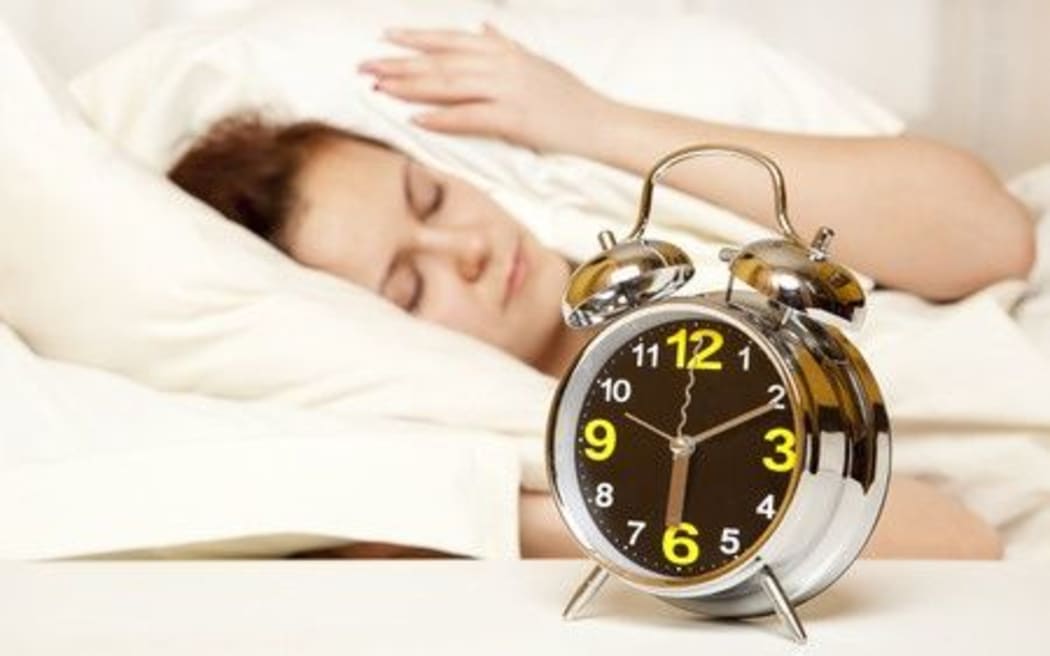Harvard medical school psychologist Dr Deirdre Barrett has collected a dream survey during the Covid-19 pandemic.
Dr Barrett is a sleep expert who has been studying dreams for 30 years.

Photo: 123rf
The fact people are having more vivid dreams at this time could be simply because we are sleeping more, she says.
We go into REM 90 minutes into the night but the first REM period is four or five minutes long and each one gets longer so the last one of the night if you sleep for 8 hours is about 30 minutes,” Dr Barrett told Jesse Mulligan.
If we sleep less than 8 hours we then lose a big chunk of our dreamtime, she says.
“All crisis tend to stir up our dream lives a little bit, so we’re seeing a psychological effect like we do after storms and 9/11 and things like that, but I think the bigger part of the effect is that we are catching up on sleep.”
Because many of us are sleeping longer, or waking up naturally, there is a kind of “dream rebound,” she says.
“They’re getting that last, longest [dream] period in and recalling dreams like they never, ever do.”
Her research on Covid-19 dreams shows a big cluster of people having anxiety dreams about catching the virus, she says.
“One woman looks down at her stomach and sees that it has blue stripes on it and in her dream she remembers that this is what medical authorities say is the first sign of Covid-19.”
Then come the metaphors, she says
“I’ve seen lots and lots of bug-attack dreams.
“Swarms of bees and hornets flying at the dreamer, armies of cockroaches racing at them, masses of squirming worms.”
This could also be a kind of dream state pun as a catching a bug is how we describe getting ill in the vernacular, she says.
“But also, the metaphor that lots of small things could cumulatively kill you makes a bug attack a good metaphor.”
Other metaphors reported to her included hurricanes, tornadoes, tsunami and fires breaking out. These were sometimes mixed in with actual news about the pandemic for example the dreamer might dream that a hurricane or cataclysmic event is “fake news”.
Isolation can also influence our dreams and she has studied research done on this among POWs in World War II.
“I found they had these longing dreams for things they missed, they dreamed about their families of origins their home town, their girlfriends.
“But also they had more food dreams than any sample I’ve seen. They weren’t starving, but they had a very bland, boring diet so they were dreaming about mom’s apple pie or going to the pub for fish and chips.”
She is seeing similar longing dreams now, and also dreams about social isolation, she says.
“There was one woman who had been appointed to be on the first Mars mission and she was on a colony on Mars alone.”
Other people are dreaming about being crowded out, the “whole neighbourhood had moved in with them”.
A woman home-schooling her child dreamed: “That the school told her that the child’s whole class had to stay with her during the pandemic and she would be home schooling all of the children in the class.”
Anxiety dreams are more prevalent among people at the frontline, she says.
“From the healthcare providers I see lots of dreams that are about people dying of Covid-19 they dream that they’re trying to get a tube into their throat but it’s too constricted.”
Her tip to stop anxiety dreams is to fall asleep with a picture of something pleasant in the mind.
“Form an image of what you do want to dream about, be it a favourite person, or a place, or maybe you like flying dreams and then just drift off to sleep with a strong image of that in your mind.
“Or you can even take an object or photo and put it on your night table to stare at it.”
When we dream, it is simply us thinking in a “different bio-chemical state,” she says.
“Dreams, they show us another side of ourselves it’s not necessarily realer or deeper, it’s just that we’re usually operating in a linear, logical mode where you’re usually operating with all the social rules that we’ve incorporated, and our dreams think of things we want without censoring them.”
You can take Deidre's covid-19 dream survey here.

